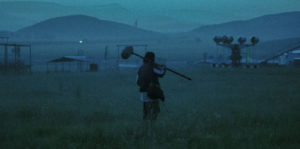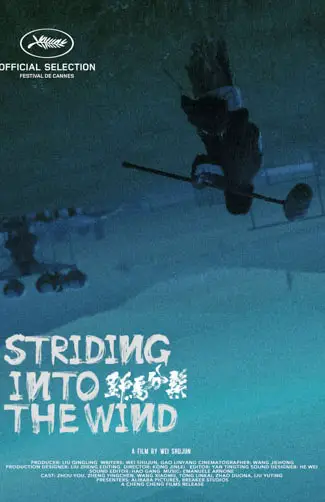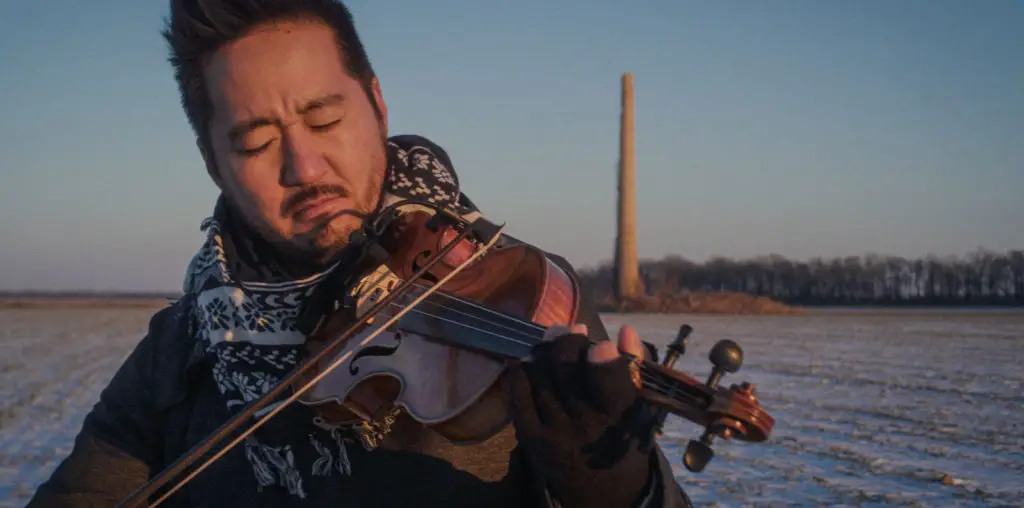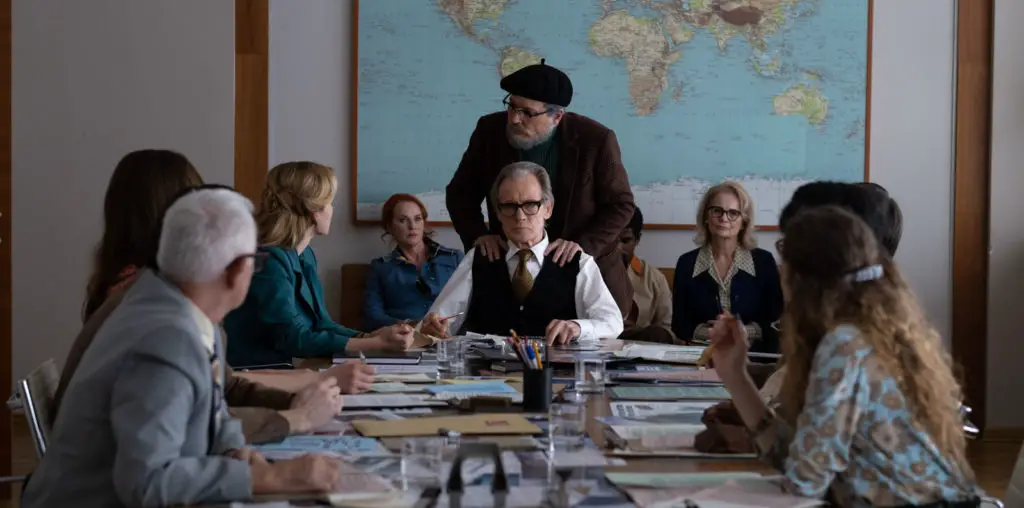
Striding Into The Wind has a subplot involving a movie undergoing production. Kun is its sound recordist, while he hires Tong as the boom operator. Ming (Wand Xiaomu) is making a thesis project about a Mongolian herder searching for her missing husband. Wei’s early days as a sound recordist take precedence in this section, wherein the characters frequently quote the likes of Wong Kar-wai and Hou Hsiao-Hsien. The impact and inspiration of these legendary directors are visible in Wang Jiehong’s cinematography. The film is filled with several well-choreographed sequences, which reveal a lot under the hood of all the fun and laughter. There are long static shots, wide scenes capturing the natural landscape’s beauty, and the camera lens longingly gazing through Kun’s Jeep at the world.

“…filled with several well-choreographed sequences…”
The title may be analyzed and decoded to refer to a journey into the future or the struggles one faces through the early years of adulthood. But that’s not the case. If the title has to be given an interpretation, then it would be the juggle through the fiascos of modern youth lifestyle, though through a satirical lens. Chinese contemporary life, the pressure of sustaining a conventional profession, the negligence of technical staff and their skills on a movie set, and even the status and culture-oriented strictness in society are all on the chopping block.
There’s no unpredictability left in the plot by the time Striding Into The Wind hits its final act. The last sequence is not a hard-hitting climactic reveal yet but is rather thought-provoking. The motion picture doesn’t necessarily deliver anything at a set pace and often lowers the intensity before raising it again. And that could cause viewers to lose interest at several points. However, if you realize that the crux isn’t the plot but rather Kun and his antics, then you won’t feel the film diminish at any moment.

"…Wei's thesis on the attitudes and culture of modern youth."


